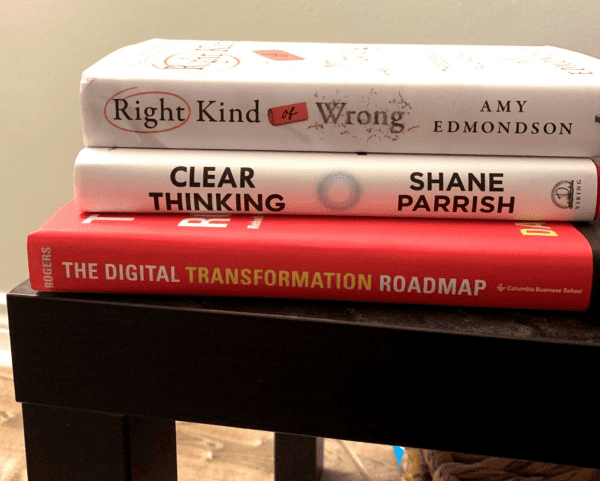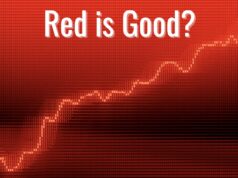Thanks as always to Ryan McCormack for this… there's always so much good reading, listening, and viewing shared here by him! Subscribe to get these directly from Ryan via email.
Insights about improvement, innovation, and leadership…
Operational Excellence, Improvement, and Innovation
Don't use your SPC chart as a process steering wheel (unless you don't want to get anywhere)
Dr. Wheeler asks “can we adjust our way to quality?” and takes us on a detailed analysis of the effects of various adjustment algorithms on a non-conforming process.
So can we adjust our way to total quality? In short, no.
The Shewhart cycle endures
The Shewhart cycle is an enduring mental model of improvement that has survived even the shift from industrial-era improvement methods to modern digital-era improvement thinking. Here's a serviceable definition of PDCA for the uninitiated.
Some quick hits:
- 10 Shifts Making Waves Across Industries
- Download the PEX Report 2024 – global state of operational excellence.
- Goldman Sachs on the potentially large effects of AI on economic growth.
- Using data science to drive continuous improvement in the DC (warehouse).
- Someone should strive to get a Nobel Prize for reducing the lead time it takes to get the award. The average time is increasing to “'til after you're dead”. The lead time for Nobel Prizes is ever-increasing.
Creating a Culture of Improvement
Who should do strategy?
What are your leaders doing if you are outsourcing strategy to a strategy department? Roger Martin challenges leaders to take ownership of strategy as part of their general management responsibilities and suggests that if they abdicate this responsibility they shouldn't be leading. Similarly, strategy is increasingly about making integrative choices for the enterprise, meaning that strategy isn't one person's job but a team sport. Who should do strategy? It's your team, stupid.
What does it mean to be a curious leader?
Curiosity is routinely listed as a key characteristic of effective leaders. What does a curious leader do? Here are 5 simple rules for curious leaders.
Begin by changing yourself
One of the toughest things about leading change is that leaders are the hardest to change. It's rational for leaders to behave the way they always have – after all, it's what got them to where they are. Changing your ways is hard. It requires self-awareness, commitment, and practice. No wonder few are up for it. Leading change may need to begin with changing yourself.
Unconditional Culture
Some say that the culture of any organization can be defined by the worst behaviour it is willing to tolerate. Making culture unconditional is key to its sustainment, but in order to be unconditional, your culture must be clear, credible, consistent, and specific.
What's on my nightstand

I thoroughly enjoy Amy Edmondson's book The Right Kind of Wrong: The Science of Failing Well. The book outlines different types of failures, the importance of context, the importance of blameless reporting, and how learning from failure is essential for performance.
The “technology implementation roadmap” you've been using since 1999 is no longer sufficient to keep up you current. David L. Rogers lays out a step-by-step approach for digital transformation leaders seeking a holistic reimagining of their business in The Digital Transformation Roadmap: Rebuild Your Organization for Continuous Change.
It's no secret that I'm a big fan of Shane Parrish – his books, website, and podcast series. So naturally, I picked up his latest offering Clear Thinking: Turning Ordinary Moments Into Extraordinary Results. Clear Thinking is akin to a supercharged exercise manual for your brain.
Coaching – Developing Self & Others
Conspire and align
Management is an increasingly stressful role. Many organizations straddle between traditional management models expected from older workers and emergent styles important for retaining younger or newer workers. Trying to be everything to everyone will lead to burnout and means you are consistently disappointing everyone. Try a “conspire and align” approach to move past burnout.
Habits, routines, and rituals
Many of our behaviours are on “auto-pilot” – which is great because being intentional and conscious of every action we take would be exhausting. But it's obviously better when our habits are good ones. Turning a good routine into a good habit takes deliberate practice. But what about turning a good routine into an experiential ritual? Design better habits, routines, and routines with the intentionality curve.
Follow Ryan & Subscribe:
LinkedIn: https://www.linkedin.com/in/rjmccormack/
Subscribe to receive these via email
Please scroll down (or click) to post a comment. Connect with me on LinkedIn.
Let’s work together to build a culture of continuous improvement and psychological safety. If you're a leader looking to create lasting change—not just projects—I help organizations:
- Engage people at all levels in sustainable improvement
- Shift from fear of mistakes to learning from them
- Apply Lean thinking in practical, people-centered ways
Interested in coaching or a keynote talk? Let’s start a conversation.









